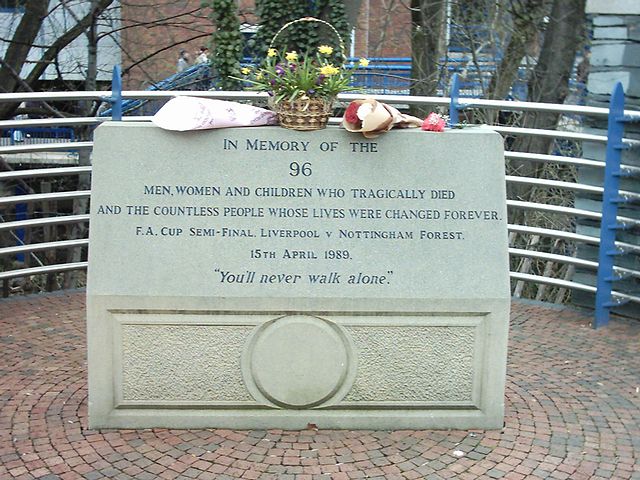Police promise ‘cultural change’ in apology to ‘profoundly failed’ Hillsborough victims
On 15 April 1989, 97 Liverpool fans went to a football game and never came home. The fatal crush, during the FA Cup semi-final between Liverpool and Nottingham Forest, became known as the Hillsborough Disaster. Decades of lies, systematic cover-ups and scapegoating has since kept justice hidden from the victims and their families.
The National Police Chiefs Council and the College of Policing published a joint apology, in response to a 2017 report, which highlighted the failings at Hillsborough. Many feel that the apology is too little, too late.
Chief Constable Anthony Marsh stated that “policing got it badly wrong”, a phrase which at first appears euphemised, but perhaps further understates the police’s failings. Marsh promised “cultural change” on behalf of all 43 police forces.
The apology itself was not even extended to the survivors of the disaster, which shows the ignorance of the statement. With the Service having had 34 years to find the words with which to apologise for its failings, such an omission appears shocking and insensitive.
Hillsborough Justice Campaign member Sheila Coleman called the Metropolitan Police “a rotten institution” and slammed their apology. “It’s very disappointing. I’m underwhelmed,” she said. “An apology 34 years on has no teeth. Apologies are devalued when no action is taken on the back of it.”
Campaigners are still lobbying for the ‘Hillsborough Law’
In 1990, a public enquiry concluded that South Yorkshire Police had allowed thousands of fans to enter Hillsborough Stadium through one single tunnel without any specific plan. This enquiry comes after stories of drunk and disorderly fans and tales of those without tickets, which have been entirely fabricated, to alleviate the blame on the police force.
In 2012, the Hillsborough Independent Panel, chaired by former Bishop of Liverpool James Jones, found that the South Yorkshire Police service was entirely to blame for the Hillsborough disaster. It exposed the number of falsified stories, which sought to blame Liverpool fans for the crush. Although a coroner had originally ruled accidental death in each case, a new inquest in 2016 concluded the victims of the crush had been unlawfully killed, due to gross negligence manslaughter, attributed to Chief Superintendent David Duckenfield, the police match commander.
Campaigners are still lobbying for the ‘Hillsborough Law’, which has been endorsed by former prime minister Theresa May. The law would seek to introduce a duty of candour as a statutory measure — perhaps, facilitating Marsh’s promised “cultural change” — on all public servants during public inquiries. Consequently, it would also ensure proper participation of bereaved families during and at inquests, through legal representation financed by public funding.
A public advocate would also act on the behalf of families of the deceased following major incidents, akin to the Hillsborough disaster. However, the Public Advocate (No. 2) Bill was denied a second reading in the House of Commons on 3 February, just days after the police’s apology.
Over three decades on from the Hillsborough disaster, it is shocking that the victims and their families are still struggling for justice against the corruption of the police system. It is now a more appropriate time than ever for the government to reflect and act on the events of 1989 and the pattern of institutional lies and deceit within the police.

Comments